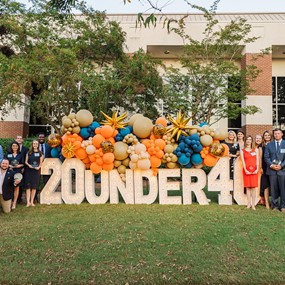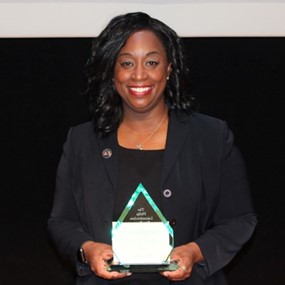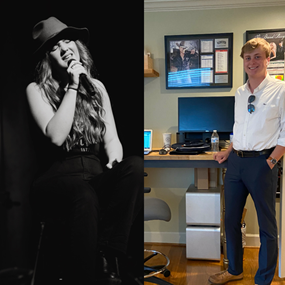Sports communication professor expands understanding of coach-parent-athlete relationships in uncharted field of private sports

Mike Milford, a communication professor of 15 years at Auburn University, takes initiative in his research to develop a healthier correspondence between an athlete, their coach and their parents.
"I have three kids and they all do private sports, and I noticed that there were some kind of extreme parents involved. They get really intense at the games and not all of them were nasty, but a lot of them were," Milford said. "I was sitting at a soccer game and watched a grandparent threaten to fight an opposing player and thought, 'Man, that's messed up.'"
Milford attended the 2023 National Communication Association Convention in November and shared his findings with other professors in his field including Professor Joe McGlynn at the University of North Texas and Professor Travis Bell at the University of South Florida. Each professor shared they had seen similar issues.
"We started looking at the research to try to figure out why parents were so intense, but most of the research was from high school age and public school sports," Milford said. "There was practically no research on what we're calling fee-based youth sports, so we decided to start better understanding this space."
Milford's team is trying to understand "the triangle": the athlete, the coach and the parent. The end goal is to evaluate how all three interact. Milford decided to start with coaches to hear what they have to say about the parents. From five different states, Milford and his team interviewed 25 coaches of all different sports, ethnicities, gender experiences, sports techniques and focuses.
"What was really remarkable was how consistent their answers were about their frustrations with parents in these spaces," Milford said. "Whether we were talking to a soccer coach in Virginia or a basketball coach in Indiana or a wrestling coach in Alabama, we were getting the same answers about parents."
One of the main qualities that Milford found in these parents was that they were obsessed with success. They weren't particularly interested in whether their child was improving in the sport or learning but were very interested in if they were winning.
"A soccer coach said he tries to tell these parents that they're not going to win when they're young, but they need to learn to play for when they get older and the games start to really matter," Milford said. "A wrestling coach told me he had a parent berate him on the mat after his seven-year-old lost a match that didn't even count. It's seven-year-olds, it's just kind of practice against other players."
Fee-based youth sports, like travel soccer or club swimming, are not affiliated with a city, a school or a state. These private sports account for about $30 billion a year in the United States alone, with parents spending upwards of $25,000 a year on these activities.
"We thought maybe that the coaches would be a little gentler with parents because of the consumer aspect, but what we learned was the opposite," Milford said. "We talked to two internationally recognized elite gymnastics coaches, and they said, 'If we have a problematic parent, we just throw them out because there are 50 more that'll take their place.'"
Milford and his team are already working on interviewing parents about coaches. The goal is to have 5,000 parents explain what they think makes a good coach. By next summer, Milford's team aims to have interviewed former athletes to try to get a sense of how athletes view their parents' and coaches' behavior.
"This research gives us an interesting opportunity for us to take our research out and help coaches and parents become better communicators and make their experiences in sports and with their athletes better," Milford said.
Learn more about the School of Communication and Journalism at Auburn University.







